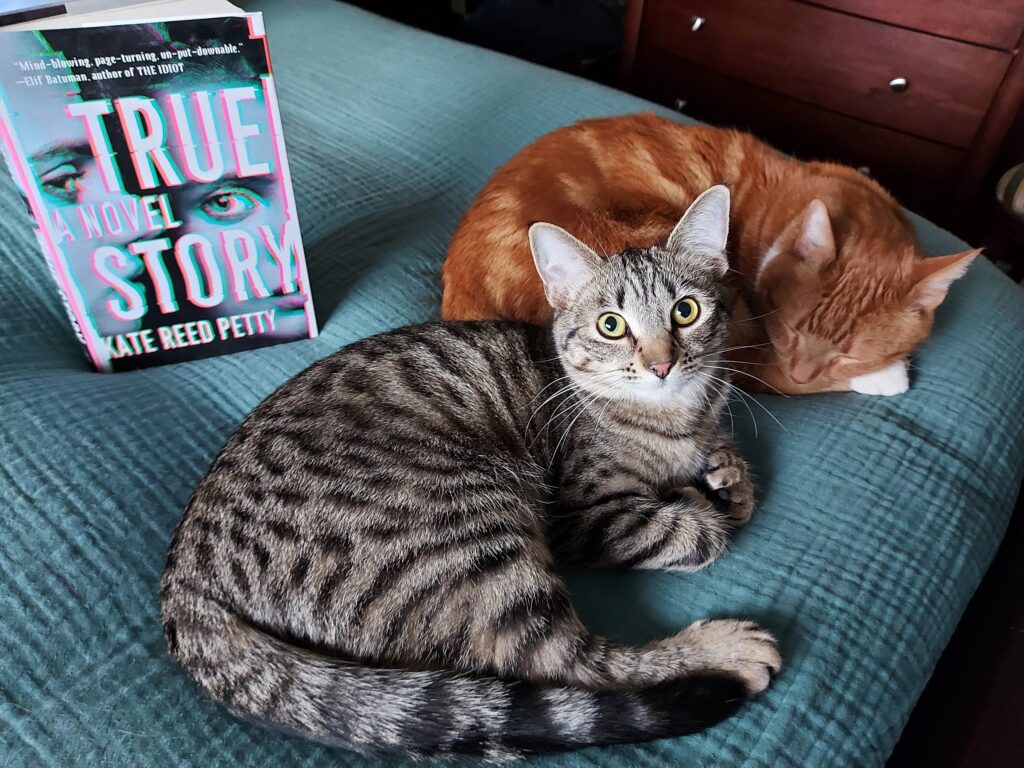True Story by Kate Reed Petty

True Story has an intriguing premise, but I ended up not liking how it was executed. It is a novel about a teenage girl who is sexually assaulted by two teenage boys when she is passed out in the backseat of a car. The thing is, she does not remember anything of what happened to her, and the two boys who allegedly assaulted her insist they did not do it. So, what really happened?
The novel is told from two perspectives. The first perspective is Nick Brothers, friend and lacrosse teammate to the two boys who allegedly committed the assault. I do not really see the point of Nick’s perspective, unless it is to show us how boys learn to become toxic males who do not respect women. Nick does not know the girl who was assaulted, and of course he does not believe his friends are capable of assaulting the girl. After high school, Nick becomes an alcoholic and his life is a mess, but it has nothing to do with the assault. He does not think about the anonymous girl who was assaulted, and he does not feel sorry for her or feel any regret. Nick does not seem to care for anyone but himself. So why is the reader supposed to care about Nick and the events that happen to him later in life? There is a last-ditch effort for Nick to redeem himself before the end of the novel, but it feels hollow. The novel would have been better without Nick’s perspective or might have been better told from the perspective of one of the assaulters, but then there would be no central question of what really happened the night that the assault took place.
The second perspective is Alice Lovett, the victim of the alleged assault. Her perspective is definitely the more interesting one because the author has chosen to use different literary devices to give the reader insight to the life of a sexual assault survivor. Alice’s story is told through various drafts of her college application essay (where we see how sexual assault survivors are both bullied and silenced), an unsent email she writes to her best friend (where we see how a survivor’s confidence in herself can be so shattered that she ends up in an abusive relationship), and screenplays written by Alice and her friend years before the assault happened, when Alice had dreams of being a famous writer and not the ghostwriter she ends up becoming. But then Alice’s story devolves into a silly thriller where one of the assaulters, who becomes a rich and famous tech guy, wants to dig up some blackmail on Alice so that she will not publicize the assault.
True Story has some important things to say about the way men treat women and the way society treats survivors of assault, and when the truth finally does come out, it is surprising; but then Petty decides to have Alice explain the ending, like Petty thinks her readers are not capable of inferring things themselves, which I found to be insulting. If you are interested in reading a good book from the perspective of a survivor of sexual assault, then I highly recommend Chanel Miller’s memoir Know My Name over True Story.